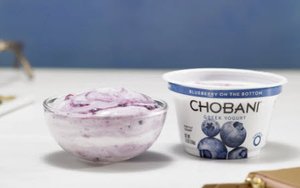 Retail sales growth of U.S. consumer product goods slowed to just 1.4% last year, to $681 billion, after 3% growth in 2015, according to the latest “CPG Growth Leaders” report
from Boston Consulting Group (BCG) and IRI.
Retail sales growth of U.S. consumer product goods slowed to just 1.4% last year, to $681 billion, after 3% growth in 2015, according to the latest “CPG Growth Leaders” report
from Boston Consulting Group (BCG) and IRI.
The annual report examines more than 400 public and private CPG companies with sales of more than $100 million in IRI-tracked retail
channels (grocery, drug, mass-merchandise and convenience) and ranks them, in three size tiers, on the basis of their growth in dollar and unit sales and market share gains. The study also analyzes
the trends driving performance.
Last year’s slow growth primarily reflected price deflation rather than declines in unit sales — although industry unit sales did see a
decline outside of the identified growth leaders. Largely due to shifts in the prices of commodities including milk and eggs, prices rose just 0.8% on average last year, versus an average increase of
2.3% in the previous four years. Rising online purchases also contributed to slower CPG sales growth in conventional retail stores.
advertisement
advertisement
In addition to unit growth, the growth
leaders boosted their revenue through pricing and product-mix management strategies.
Once again, companies that focused on serving consumers’ seemingly contradictory demands
for convenient but nutritious fare on one hand, and indulgence on the other, outperformed their competitors.
Growth leaders marketing snacks and plant-based,
“functional” beverages making nutrition and/or energy claims included Blue Diamond, BodyArmor, Califia Farms, Bragg, and The Wonderful Company.
Health and beauty
aids that convey “wellness” were also among 2016’s strong CPG growth categories. Personal care and household products with whole, natural ingredients are projected to grow at a
compound annual rate of 7% to 9% through 2020—about double the expected growth for personal care products as a whole.
The indulgence end of the spectrum was evidenced by sales
of ice cream, spirits, wine and salty snacks, all of which grew by 4% to 5%, or about three times faster than U.S. CPG sales overall — and by high growth at companies including Mars, Hershey's,
PepsiCo, Hostess, and Constellation Brands.
As has been true since 2011, smaller CPG companies ($100 million to $1 billion in IRI-measured retail sales) continued to grab
market share from larger ones. Their collective market share rose to 25.6% in 2016, from 25% in 2015. Over the past five years, they have taken three percentage points, representing about $20 billion
in sales, from their larger counterparts.
Not surprisingly, some of the best performers among midsize and large companies were those, like Johnson & Johnson and Unilever, that
acquired smaller companies that produce health-oriented foods, beverages and personal-care products.
The Top Growth Leaders
Among the largest CPG
companies — those with U.S. retail sales of more than $5.5 billion — Reynolds American, which recently acquired Lorillard, tops the ranking for the second year in a row.
The other large companies in 2016’s top 10 ranking, in order, are Johnson & Johnson, Tyson Foods, Grupo Bimbo, Mars, Kimberly-Clark, Hershey’s, PepsiCo, Unilever and Altria
Group.
The top 10 among midsize companies ($1 billion to $5.5 billion), are Chobani, Hostess Brands, Energizer Holdings, Constellation Brands, Starbucks, Danone, The Wonderful
Company, Monster Energy, Blue Diamond and L’Oreal.
The leaders among small companies ($100 million to $1 billion) are BodyArmor, Idahoan Foods, Bragg, Bai Brands, Daisy
Brand,Califia Farms, Noosa Yoghurt and Old Trapper.
Leaders in Total Shareholder Return
There was significant overlap between growth leaders and CPG
companies that are among the best performers in delivering total shareholder return (TSR), which measures the combination of the change in share price and dividend yield for a company’s
stock.
Of the top five U.S. CPG companies in BCG’s most recent “Value Creators” report, which ranks companies by TSR over a five-year period, four are also on the IRI/BCG
growth-leader lists: Constellation Brands, Monster Energy, Reynolds American, and Tyson.
“Even in a sluggish market, the CPG growth leaders show that opportunities abound for
companies that understand evolving consumer preferences and build a strategy to capture the opportunities,” said Peri Edelstein, a BCG partner and a coauthor of the study. “The key to
sustained success in this rapidly evolving market is to follow consumers around the clock and compete in the marketplace with the mentality of a startup.”